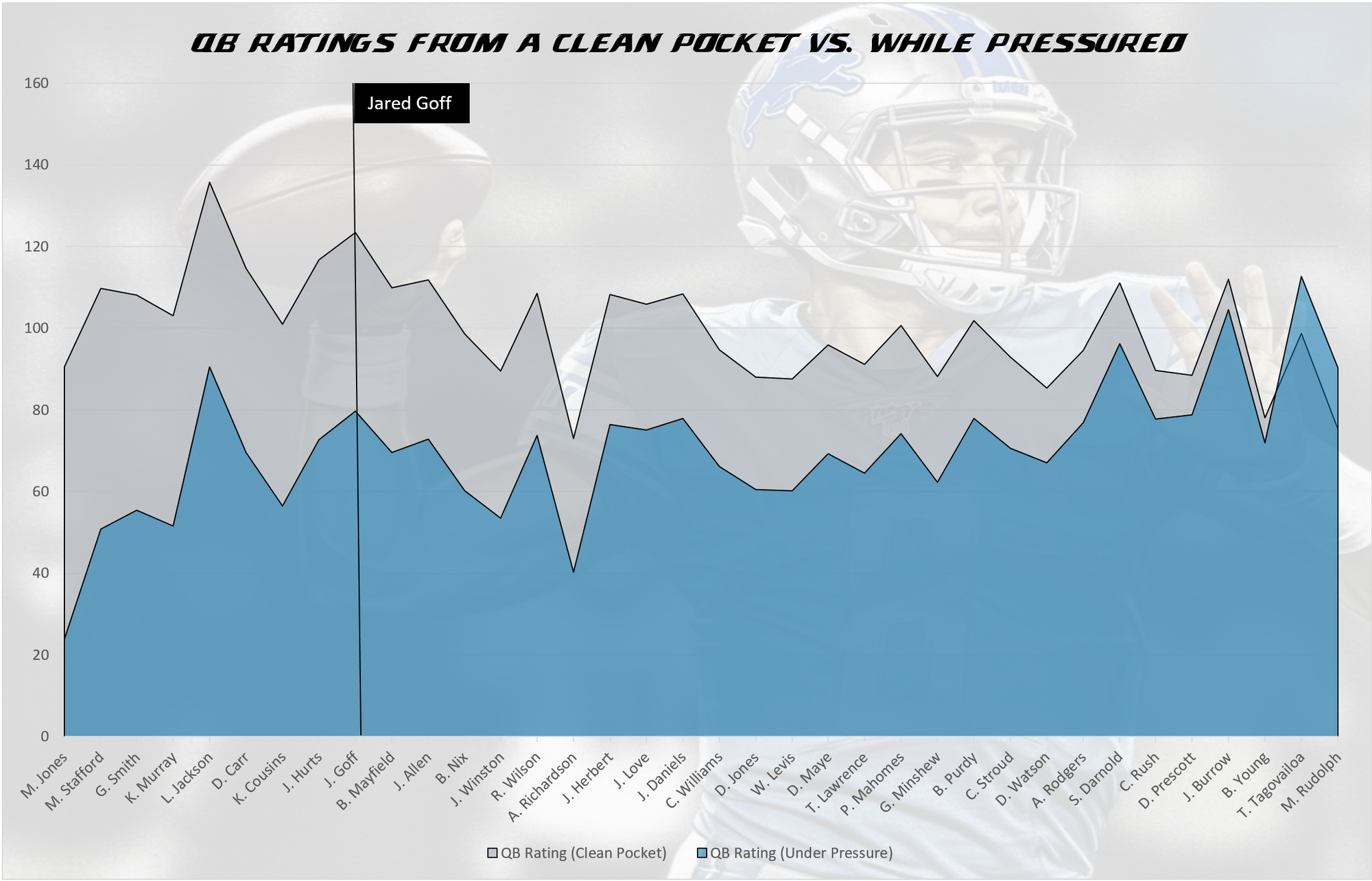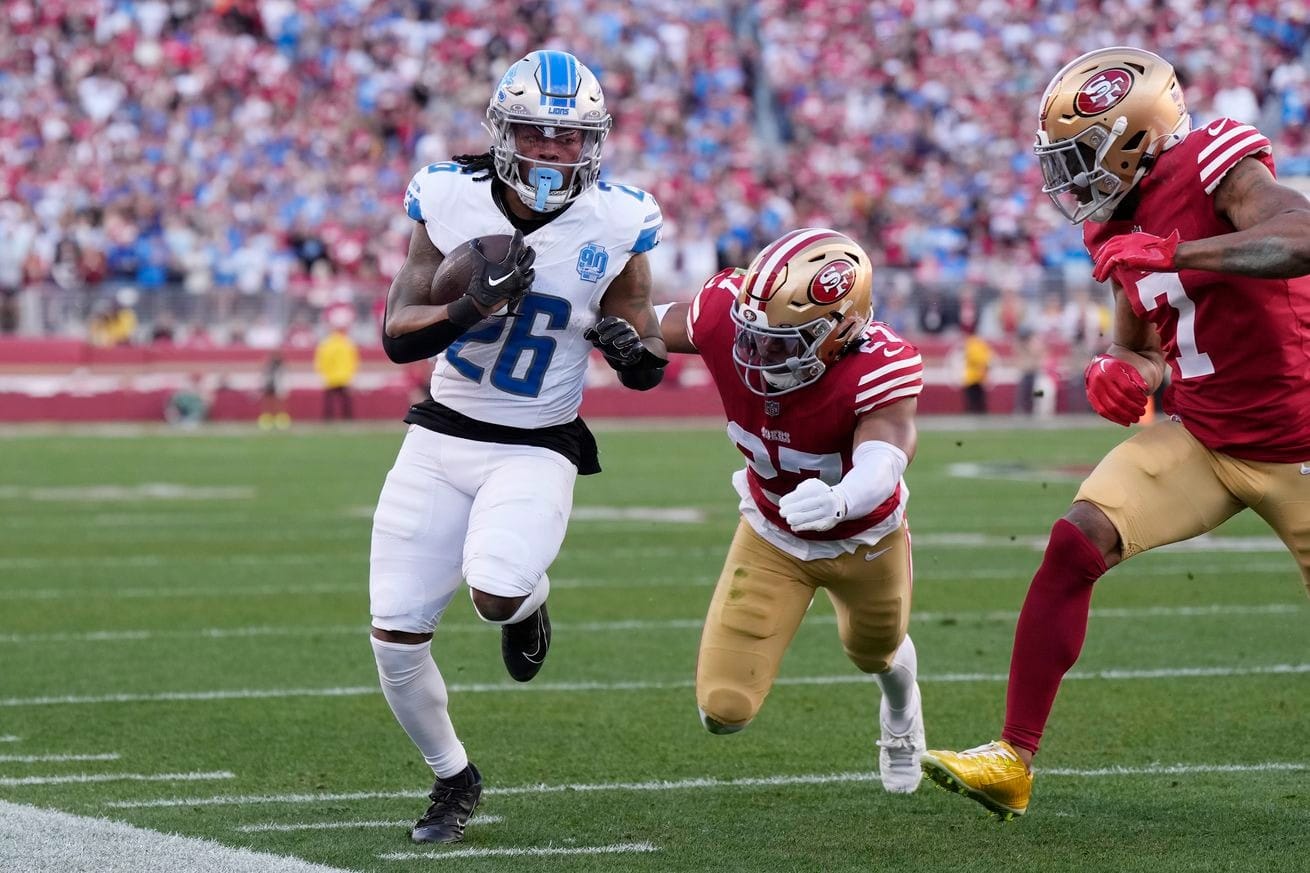
Quick Slant: MNF - This Incredibly Long Journey Through Attrition (One Last Haymaker)
Lions @ 49ers, Monday @ 8:15 PM
I’m not saying Dan Campbell is a vengeful man, but I’m also not certain he wouldn't get a grin out of a little cosmic justice. The Cowboys were gifted a victory against his Lions late last year after a penalty for illegal touching was called on a two-point conversion that would have given the Lions the lead with 27 seconds left in the game. Referee Brad Allen seemed to get confused, assuming tackle Dan Skipper had reported eligible when it had actually been Taylor Decker. The Lions failed to convert the subsequent two-point conversion and onside kick and the game was lost. I won’t get into who was at fault, but it was at least clear to everyone it wasn’t fair.
Not a year later, the Lions beat the pre-injured Dak Cowboys 47-9. Coincidence?
Picture me shrugging.
Another acrimonious loss for Detroit—worse, even—came in the NFC Championship game about a month later. The Lions charged out to a 24-7 halftime lead over the 49ers. This result was surprising—sure—but their lead felt somewhat secure under the haven of their strong defense and running game. And yet, Brock Purdy and the Niners came roaring back to snatch victory from the jaws of defeat. The embarrassing loss must have sat in Campbell’s craw all summer.
The Niners enter Monday night’s game as 3.5-point underdogs at home. Their once-heralded championship pilgrimage finally narrowed and ended a week ago, not with the roar of triumph but with the grim peace of prey sensing predator, accepting that the chase had ended. For all intents and purposes, the 49ers are a lame duck—their remaining games, a Charge of the Light Brigade situation. And Monday night, they will be fed to the Lions.
And yet, these are Kyle Shanahan’s 49ers, who belong to a culture of dominance unlike many in sports. Some fighters have been beaten into a corner and pummeled until the only force that worked against their inevitable submission to gravity and the mercy of letting go was that of the punches. And in those moments, almost operating exclusively on unconscious instinct, they’ve reared back in somatic reflex and found one last haymaker that lets them off the hook. This is the danger of counting your victories before they’ve become final.
And then there’s that cosmic justice thing. And Dan Campbell. And wouldn’t he love to put the 49ers in their place for what they did? Monday, the Lions get another shot at San Francisco; this time, the 49ers are a wounded animal. Cornered and desperate, will they give it all that is left to give? If they do, will it even be enough? Or, after three straight NFC Championships and the long winters of hard work that go along with them, will they allow the unstoppable force of inevitability to finally afford them that rare chance to try a little less hard?
Lions’ Implied Team Total: 27
Detroit is the best team in the league based on Pythagorean Wins, an expected wins model calculated using points for and points against.
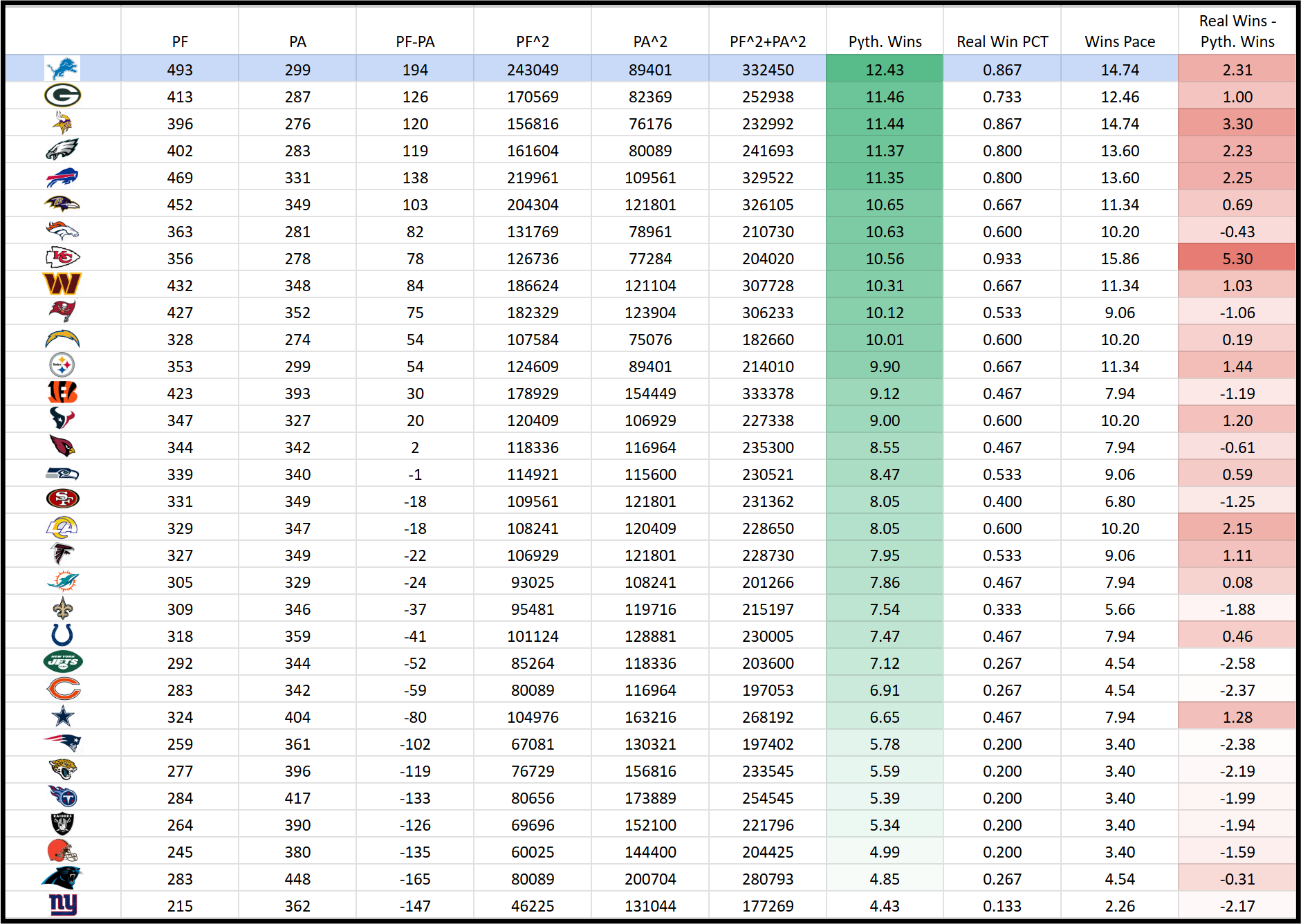
The Lions have a pass rate over expected (PROE) of -3.5%, the 22nd lowest rate in the league. They operate at an average of 29.6 neutral script seconds to snap, tied for the sixth-slowest at the line. Detroit's spent a remarkably low 15.2% of their plays trailing by at least seven and an even more remarkable 42.3% of their plays from a lead of seven or more. They only adjust to a 53% run rate while leading by such a significant margin; but obviously, they remain at the slightly higher rate more often.
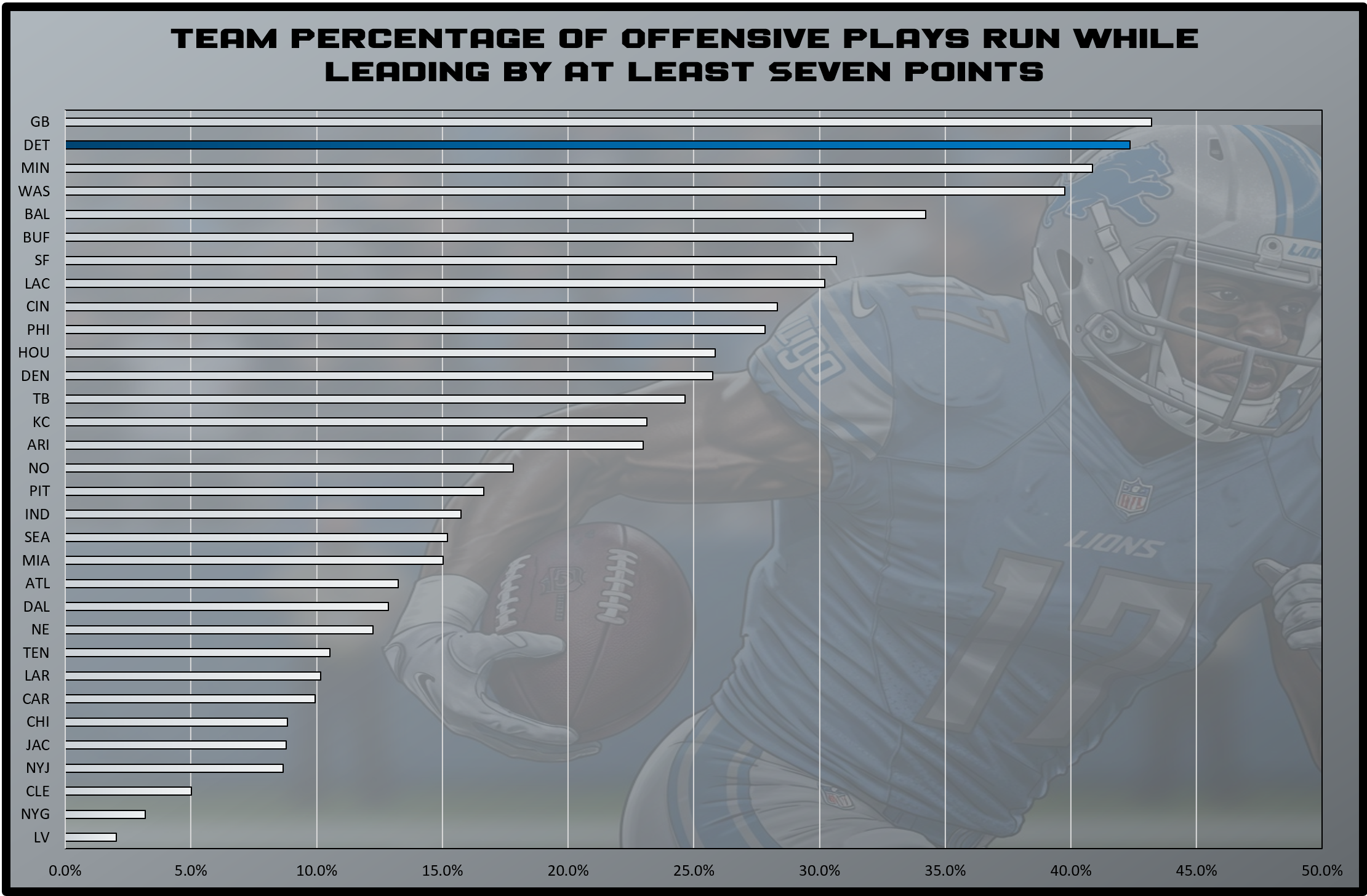
In the aggregate, the Lions’ play volume is above average at 66 plays per 60 minutes, and they run the ball on 48% of their total plays, tied for fifth.
Jared Goff has dropped back 515 times, 13th-most. He is 10th in pass attempts. He has the third-best efficiency among QBs in the league with 49.3 FPOE and is second in EPA + CPOE composite, so he has made much out of a slightly above-average workload.
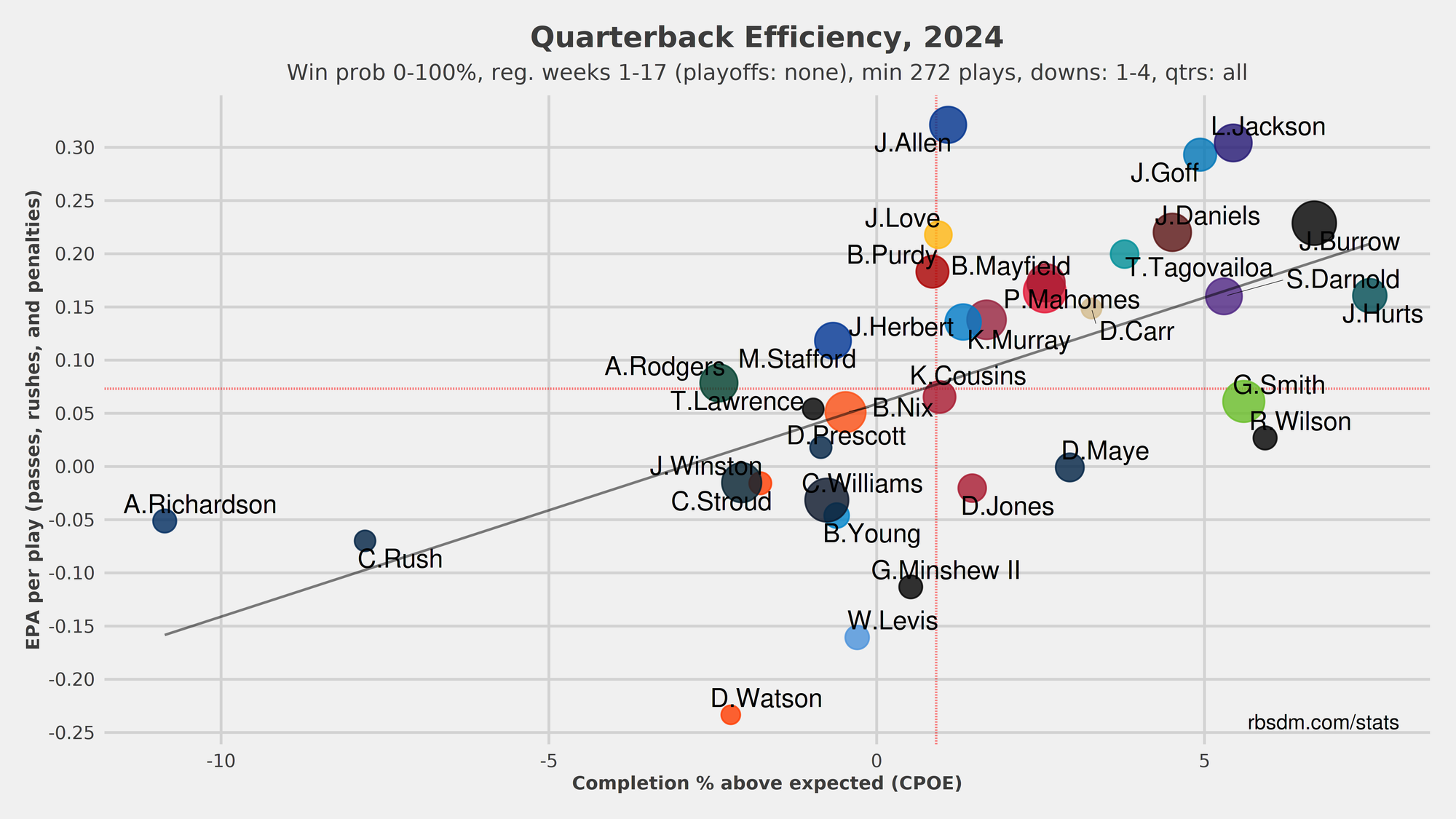
Goff ranks fifth in completions, third in passing yards, and fourth in passing touchdowns. The line where a player becomes branded as a pocket passer or a scrambler is abstract; Goff is definitely of the former classification, and he is either fantasy’s second or third-highest-scoring pocket passer of 2024 in total PPR, depending on where Baker Mayfield would be grouped.
Frankly, that Goff is still behind Saquon Barkley in MVP odds according to FanDuel Sportsbook is rationally silly. Not that Barkley isn’t awesome—he is—and RBs have won MVP for less in the league’s history. But modern thought has revealed a fallacy in the assumption that an RB is the primary driver for a running game’s success, and an RB has been empirically proven to have far less effect on wins and losses than a top cornerback or left tackle, not to mention a QB—the single-most critical position in North American team sports. If the award is about value to a team, it's not even close, which is proven and not theoretical. This is why teams have started to draft fewer RBs early and pay them substantially less money for much shorter terms, and with QBs, the inverse is true. It would be just as reasonable, if not more so, to include Penei Sewell or Pat Surtain in the MVP discourse, but that would never happen.
I digress. Goff’s numbers are terrific, and his team is one of the best in football. It is reasonable to doubt that Goff is the engine of the Lions’ success, but his place in the conversation among the Joe Burrows, Lamar Jacksons, Patrick Mahomeses, and Josh Allens is merited based on old-school MVP criteria.
The Lions have three players with a 15% market share or greater: Amon-Ra St. Brown (26%), Sam LaPorta (19%), and Jameson Williams (18%).
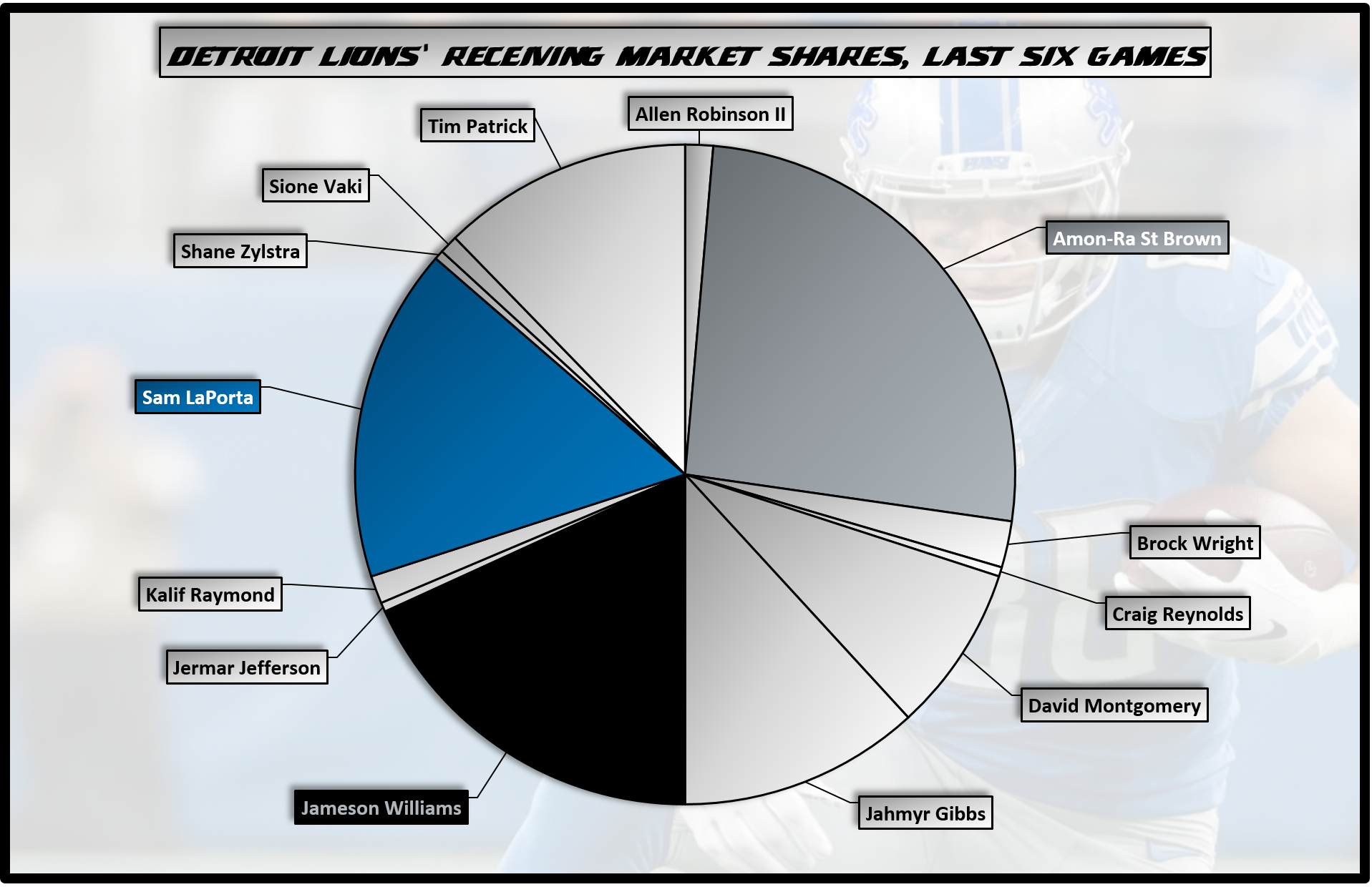
We would prefer St. Brown to have a slightly higher share than 26%; it would be great for the elite WRs we drafted in the first two rounds of fantasy drafts to hover nearer to 30%. The good news, however, is that St. Brown is an elite WR, so he has maximized his chances and still ranks third in PPR scoring over this sample. His season-long market share at 27% has helped him to the ninth-most targets among WRs, which he has converted into the second-most receptions, fourth-most receiving yards, and second-most receiving TDs. St. Brown ranks sixth in FPOE/G and 14th in Y/RR.
Williams has been highly viable as a WR3; his fluctuations give him a nice upside, which has emerged in the form of three pop-up games where he was among the fantasy top-eight. His consistency is more frustrating, however, and he has also ranked outside the top 24 eight times.
Fantasy’s incumbent TE1 overall, Sam LaPorta, comes into Week 16 as the TE11. LaPorta was already a negative regression candidate coming into the season, and he got off to a sluggish start with four single-digit market share numbers in his first six games. He’s had at least a 15% share in eight-straight starts and hasn’t fallen below 17% for the past six games. Still, he only ranks eighth among TEs since Week 8 because he has only managed 8.3 FPOE during that time, ranking 15th—this, despite actually performing slightly over expectation in a simple TDs/YDs TDOE model. There is no real upward helium from TE8 without outlier explosives and TDs or a change in usage. Obviously, in a single game, anything is possible, but that’s where we stand with him.
The Lions rank third in EPA per play and first in offensive success rate. They rank third in EPA per dropback and first in offensive success rate on dropbacks.
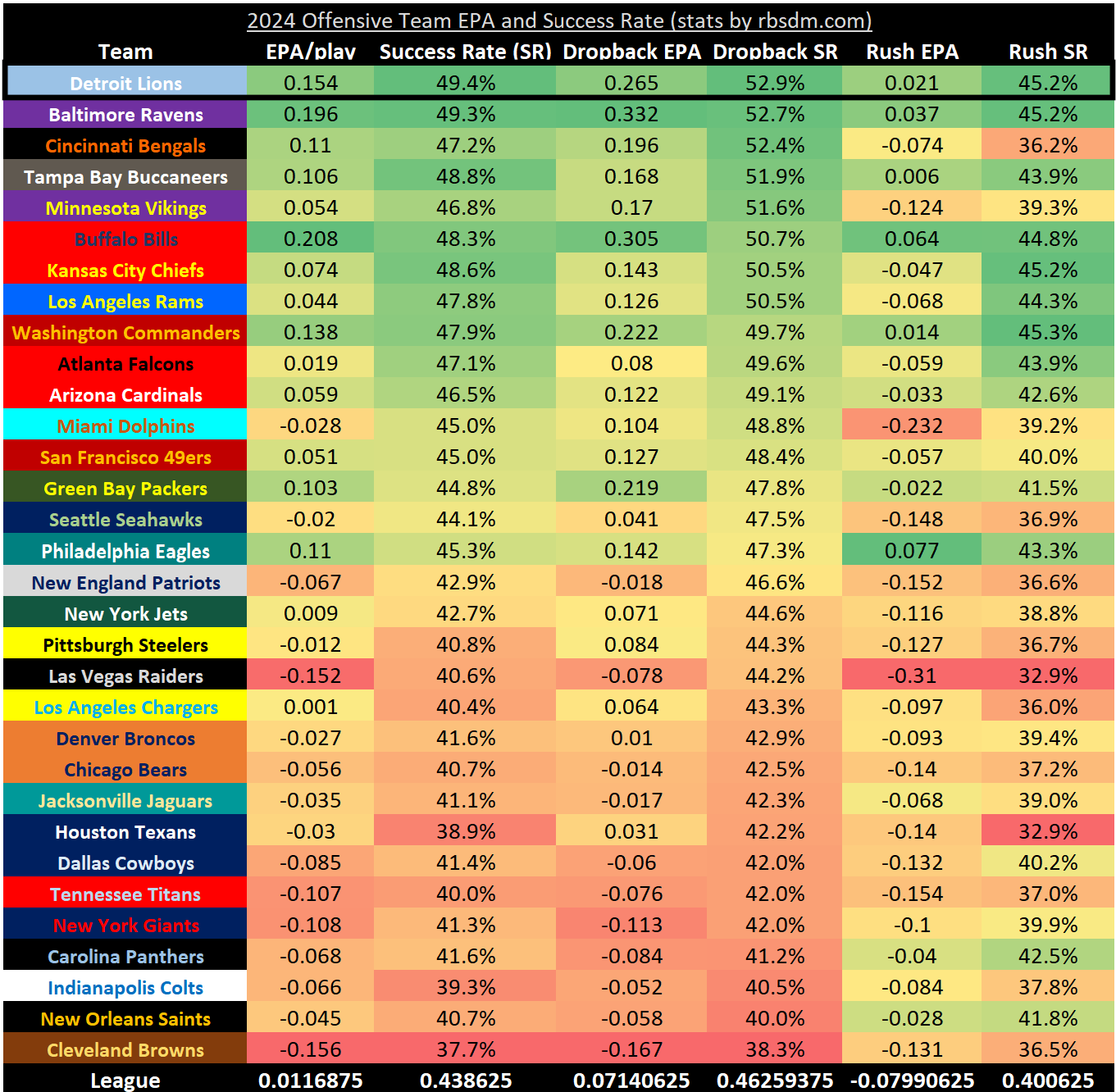
They will face a 49ers’ defense that ranks 15th in EPA per play allowed and 25th in defensive success rate. They rank 11th in EPA per dropback allowed and 15th in defensive success rate on dropbacks.
The 49ers run zone 71.9%, ranking 11th. Their primary alignment is Cover 3, which they run 34.5% of the time, ranking sixth. They use Cover 1 at 21.7% and Cover 4 at 19.7%, which ranks seventh. They run single-high/closed middle at the seventh-highest rate in the league.
Against the types and rates of coverage the 49ers use, Goff has been excellent. He ranks second among all Week 17 QBs in Fantasy Points’ Matchup Expected Fantasy Points model, which tries to base expected points per dropback on the expected coverages players should see in the upcoming week. St. Brown is the model’s fifth-best WR or TE this week, Jameson Williams is 29th, and LaPorta is 35th.
The 49ers represent a fairly difficult matchup for individual pass-catchers. They rank second in PFF team coverage grades, trailing only the Eagles.
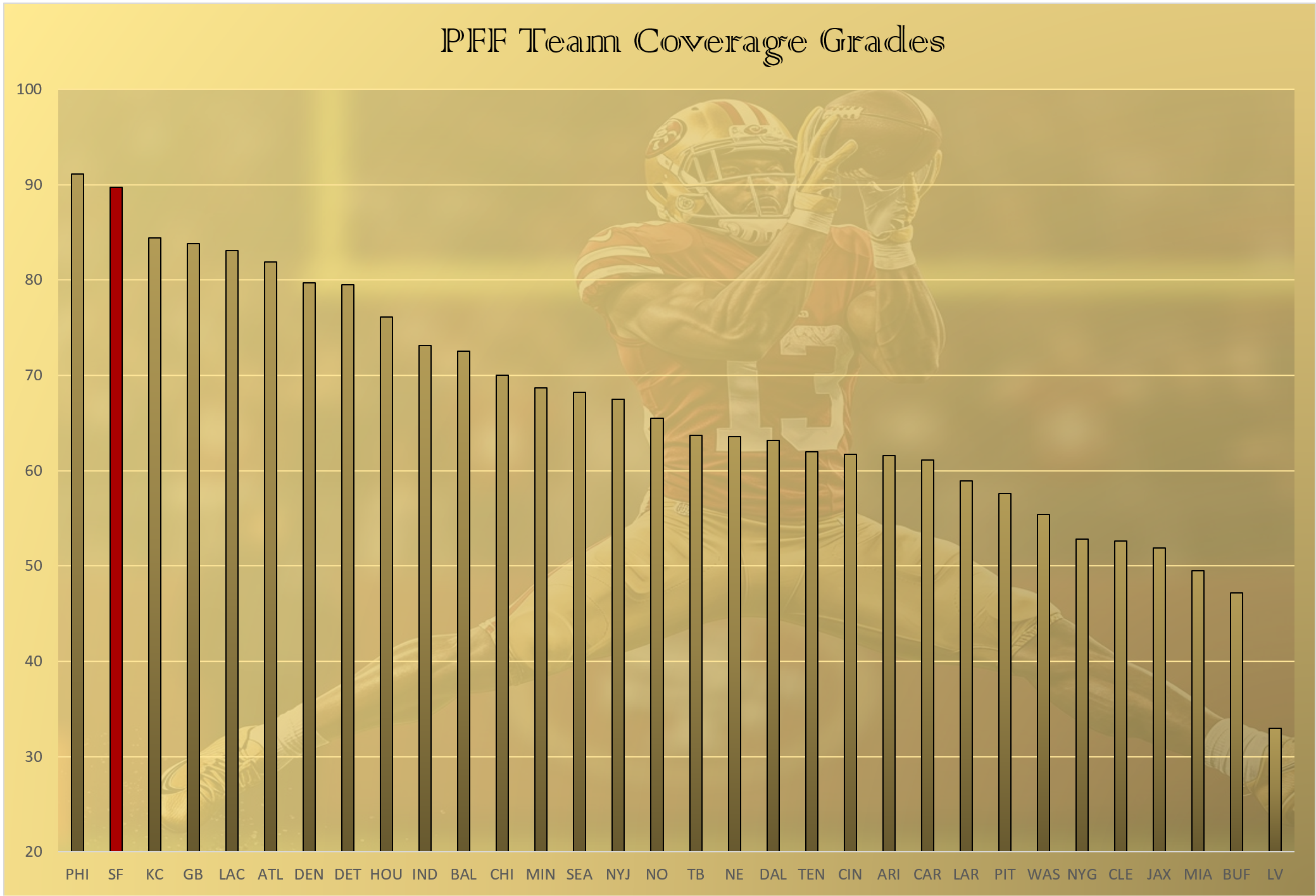
St. Brown, who primarily plays in the slot, should see Deommodore Lenoir more than anyone. St. Brown has an advantage in most matchups, including this one, but Lenoir is a decent slot corner and a tougher foil than most. As they flip-flop sides along the perimeter, Williams and Tim Patrick should draw neutral to poor assignments, although, with Williams in particular, a pathway to fantasy points can be found on a single play.
LaPorta may see plenty of Fred Warner, who is PFF’s highest-graded LB this year, but his most common assignment could be Dee Winters. Both are good in coverage and may present a sliver of a problem for LaPorta on traditional TE routes.
One of the Lions’ great strengths is their offensive line, which is arguably the league’s best. They have allowed the fourth-lowest pressure rate over expected (PrROE) in the league; the 49ers’ defense has generated the fourth-lowest PrROE. They combine to give the Lions the third-most significant pass-blocking advantage this week.
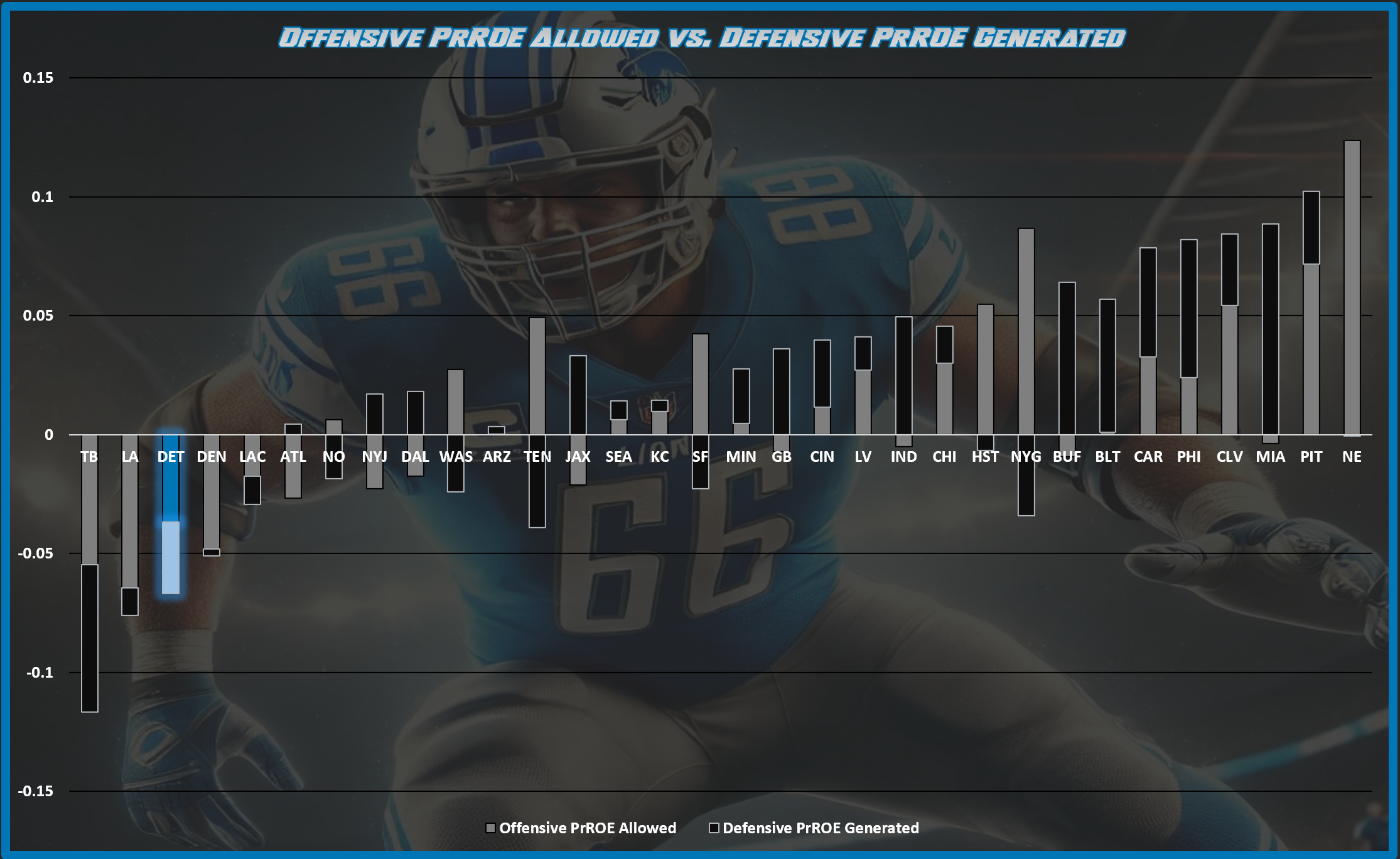
Generally speaking, every QB is worse while pressured than he is from a clean pocket, but Goff has had the ninth-most pronounced disparity between his QB rating from a clean pocket as opposed to when he is under duress.
